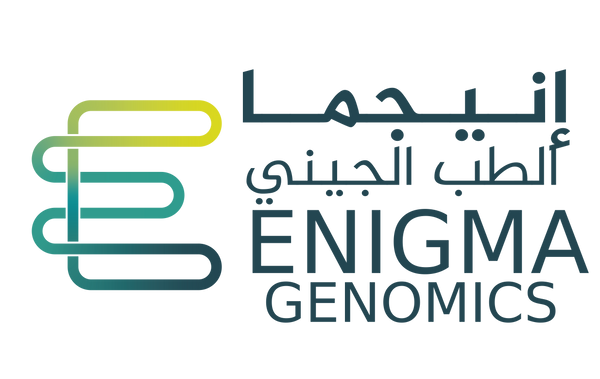
Deciding When to Pursue Genetic Screening
Approximately 6% of all births worldwide are affected by genetic diseases, with hereditary blood diseases like sickle cell anemia and thalassemia being among the most common. This is especially true in the Middle East, where 26% of all hereditary blood diseases are present. Approximately 2-3% of couples carry the same genetic disease's causes without exhibiting any symptoms, making these rare diseases difficult to diagnose and contributing to a high neonatal mortality rate of over 10%.
Genetic testing is becoming more and more important as the prevalence of genetic diseases rises. It is necessary to identify the causes of genetic diseases at an early stage and assess the likelihood of contracting them in order to provide the necessary recommendations regarding appropriate preventive or therapeutic options. However, there are many questions about when genetic testing should be done, how to choose the right genetic test, and its long-term benefits and effects on families and individuals.
We will address these issues in this article and emphasize the significance of genetic testing in preventing the spread of genetic diseases and their effects on society.
Genetic testing
Genetic testing helps determine the likelihood of developing a specific genetic disease or disorder by analyzing DNA to identify changes in the genes responsible for producing the chemicals required for the body to function normally. Based on the type of changes detected, genetic testing can recommend appropriate preventive and treatment options. Since each of us has a unique genetic makeup that influences how we respond to treatment and different environmental influences, genetic testing is essential in limiting the spread of genetic diseases and their effects on society.
A person who has these genetic mutations does not necessarily mean that he is infected; rather, it raises the possibility that he or his progeny will contract the infection in the future. On the other hand, a person who does not have these genetic alterations does not guarantee that he will never have a hereditary disease, so routine check-ups and medical consultations are essential for early prevention.
Genetic testing types
There are several different kinds of genetic testing, such as:
Diagnostic genetic testing
This type of testing helps identify whether a disease, like Huntington's disease, has a genetic basis. If so, it can help the doctor confirm the diagnosis and choose the best course of treatment for the patient.
Presymptomatic and predictive testing
This kind of genetic testing aids in the prevention of hereditary cancers like colorectal and breast cancer, as well as other hereditary diseases, by helping to identify a genetic disease before symptoms arise, particularly if there is a family history with it.
Genetic carrier testing
To provide the necessary advice to couples or those planning to get married before having children, carrier screening involves determining whether the individual carries certain genetic changes that could cause a disease or specific genetic disorder in his children in the future, such as sickle cell anemia, thalassemia, hereditary deafness, etc.
Prenatal testing
This kind of genetic testing helps identify if the fetus has genetic changes that raise the risk of birth defects or specific genetic disorders like Down syndrome, Turner syndrome, Patau syndrome, and others. Two of the most common genetic tests conducted during pregnancy are Amniocentesis, which involve taking a sample of the fetus's amniotic fluid to check for genetic disorders and the Noninvasive prenatal testing (NIPT), which involves drawing blood from the mother beginning in the 10 week of pregnancy to examine the fetus's DNA.
Newborn screening
Newborn genetic screening can be performed directly for the child after his birth to detect any genetic disorders he has early and take the necessary measures to reduce or treat the complications of the disease, such as sickle cell anemia, thalassemia, hypothyroidism, and metabolic genetic diseases such as phenylketonuria and others.
Pharmacogenomics
Based on an individual's genetic makeup, which may affect how they react to particular treatments in order to prevent side effects and complications, Pharmacogenomic test helps establish the best course of action for a given disease as well as the necessary dosages of that treatment.
Preimplantation screening
In order to protect in vitro fertilization embryos from genetic abnormalities before to implantation in the uterus, this sort of testing involves looking through the embryos' DNA. Only the Embryos without abnormalities are implanted in the uterus in hopes of achieving pregnancy.
When should you consider Genetic testing?
Genetic testing is recommended in the following situations:
1. If you want to know if you are predisposed to any genetic diseases so that you can prevent them early;
2. If you are getting married soon and want to know if you carry genetic mutations that could lead to genetic diseases in your offspring in the future.
3. If you have a family member with a genetic disease, such as autism, hereditary obesity, diabetes, etc.;
4. If you experience reproductive issues, such as infertility, delayed childbearing, or recurrent miscarriages.
5. If you have a disease that is complicated to identify because of comparable symptoms;
6. If you are the parent of a kid who has a genetic disease, whether from birth or when the child becomes older.
7. If you have a child who is developmental delayed;
8. If you had cancer before the age of 50;
9. If you have rare types of cancer, such as pancreatic cancer, prostate cancer, and male breast cancer;
10. If you are about to undergo surgery to lessen the likelihood that the cancer will spread (such as a colon or mastectomy).
The significance of genetic testing for early detection and prevention
Genetic testing plays a major role in the following areas:
Early detection and prevention of genetic diseases
Genetic testing helps to identify the genetic changes that cause a disease or may raise the risk of developing one, enabling doctors to make the appropriate recommendations for patients and their families.
Choosing the appropriate treatment (personalized treatment)
Genetic testing aims to identify the patient's genetic composition and the genetic mutations that give rise to the hereditary disease. This information can influence the degree of response to treatment and its efficacy in different individuals. This information assists the physician in identifying the best course of action for the patient and minimizes unfavorable side effects from other treatments, thereby improving the patient's chances of recovery. For instance, a cancer patient may initially be diagnosed as needing surgery to remove the tumor; however, following a genetic examination, the doctor may decide to substitute chemotherapy or other therapeutic options suitable for the patient's illness.
Determine the likelihood of recurrence of genetic diseases in the family
Determine the likelihood that other family members, particularly first-degree relatives, will contract the same genetic disease or another genetic disease based on the type of genetic changes found to cause the disease. Based on this information, genetic testing can help family members receive the necessary recommendations, which may include setting up a thorough preventive plan or having genetic testing done for them.
Developing New Treatments
By identifying more genes linked to genetic illnesses, genetic screening contributes to our understanding of their nature and helps us create more potent therapy alternatives.
Genetic counseling
Based on the information you and your family have provided regarding your health status, genetic counseling helps guide the appropriate procedure and recommend a more thorough genetic examination. Genetic counseling also helps determine the frequency of the disease in the family based on the degree of relationship. The genetic counselor's role extends beyond the pre-test stage; in addition, they assist you in understanding the test results so that you can receive the necessary guidance and instructions as well as psychological support.
In order to support you on your journey to maintain your health and the health of your family, Enigma Genomics offers comprehensive genetic tests for hereditary diseases, including premarital screening, which covers over 550 hereditary diseases, Comprehensive Cancer Panel, which covers 109 genes associated with different types of cancer, Whole Genome Sequencing, which covers over 7,500 hereditary diseases, and others.
